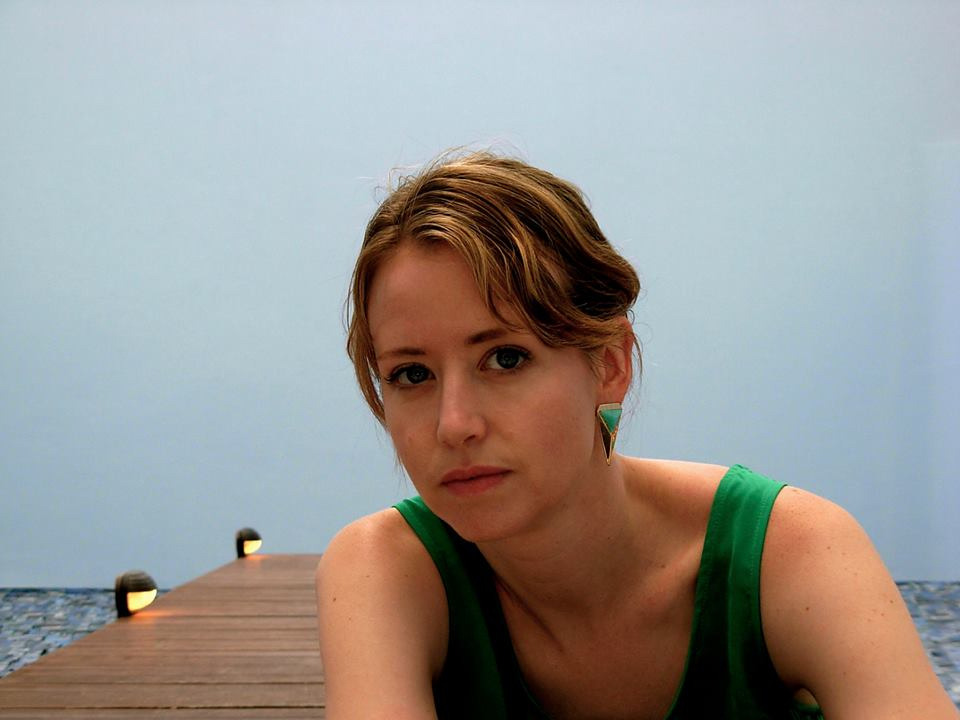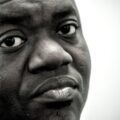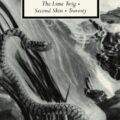Conversations: Laura van den Berg and Elisa Gabbert
 Laura van den Berg
Laura van den Berg
I have known Laura van den Berg since the mid-aughts, when we both attended graduate school at Emerson College (I on a poetry track, she on fiction) and read for the journal Ploughshares. We cross paths once or twice a year—at AWP, at literary events in Boston, at weddings—and it has been exciting to follow her work and her success. Laura has a knack for creating strange little worlds in her fiction. The emotions and relationships of the characters have deep resonance, bringing to mind Marianne Moore’s description of poetry as “imaginary gardens with real toads in them.”
In this interview, which took place over email between September and November of 2015, Laura and I discussed the role of ambiguity, instability, and unresolvability in her novel, Find Me. Find Me follows Joy, whose solitary life as a graveyard-shift clerk is upturned in the face of a plague that causes memory loss and then, ultimately, death. Joy finds herself immune to the plague and facing her own troubled past and a decimated landscape.
—Elisa Gabbert

Elisa Gabbert
Elisa Gabbert: Maybe we can start with the topic of uncertainty, since it’s something I was thinking about a lot when I read your novel. Find Me is a book full of uncertainty: the mysterious disease and the identity and whereabouts of Joy’s family, both real and foster. Were you consciously thinking of ways that you could write uncertainty into the novel and highlight uncertainty with technique—through questions, flashbacks that don’t resolve, moments of suspense right before chapter breaks? And how did you land upon such a mysterious premise in the first place?
Laura van den Berg: I tend to not trust people who seem exceedingly clear on how the world operates; I am in a perpetual state of bewilderment about many things (except dogs: they are unambiguously excellent). I recently wrote an essay on The Lover for Lit Hub, partly because I love how that book turns contradiction and confusion into very interesting subjects. Which is all to say: ambiguity resonates with me both personally and artistically.
To speak more specifically about Find Me, the world itself really sprouted up around the narrator, Joy (as opposed to me wanting to create a dystopian world outright), and I was curious about the ways uncertainty, especially around memory, in the world at large and in Joy’s private universe, could speak to each other. I’m interested in writing about things that are unresolvable—not a unique notion: most interesting fiction is homing in on the unresolvable in one way or another—and in Joy’s case, I think it’s trauma that is unresolvable. And it’s often true in our own histories too, our pasts. No matter how much you evolve and change outwardly, the shadow is always there. I find it achingly hard to write about these landscapes with any kind of clarity, but it’s a project I keep circling back to.
In terms of technique, for a long time I was just writing and re-writing (and re-writing) and gradually excavating all of this matter, with varying degrees of awareness, both with Joy and the world at large. There was a lot of slow evolution. At a certain point, I absolutely did begin to think more strategically, but that didn’t kick in for a while. Even when we feel like we’re putting something down “intuitively,” of course, years of thought and experience and study and reading and living lie behind those gestures.
One last thing, while we’re on the subject: I really dug your essay “Uncertain Terms” and I agree that uncertainty—like cynicism or positivity—can become a kind of lazy and hollow posture if there’s nothing else behind it. It’s something I think about a lot, and something I work to guard against. And I’m totally passing that essay along to my students too.
EG: Oh, thank you! So glad you enjoyed the essay. (For those who haven’t read it: I was basically interrogating the practice of “performative doubt,” which I find especially prevalent in essays these days: a tendency to feign ignorance or humility as a way of getting out of figuring things out or staking claims on something.)
I was thinking about unresolvable ambiguity in fiction recently, after finishing Familiar by J. Robert Lennon, in which you never know whether the story is “science fiction” (a woman has jumped into a parallel universe) or just psycho-drama (she has suffered a mental break). And I LOVE that you don’t/can’t know. Kazuo Ishiguro’s first novel, A Pale View of Hills, is similarly unresolvable.
This puts me in mind of my first exposure to this kind of permanent ambiguity: Calvin & Hobbes. I love that you never know if Hobbes only “comes alive” when Calvin is alone with him, or if it’s all in Calvin’s imagination.
LVDB: Oh I’m just about the start Familiar! I love The Orange Eats Creeps for similar reasons: you’re never quite sure if you are in some kind of alternate universe where there are legit vampires, or if the narrator is having a psychological collapse and it’s all a fantasy—or something in between.
EG: Adding The Orange Eats Creeps to my reading list. Riffing off the idea of the autobiographical novel that you mention in your essay on The Lover: Did you draw on anything autobiographical to create the Joy character? Your fiction almost always features a woman’s POV. How do you keep your narrators distinct in your mind? How much of your own experience and identity bleeds into them?
LVDB: You know what? I used to really sweat that idea of keeping the narrators distinct more than I do at this moment. I’ve accepted that there is, for now at least, a particular kind of voice and psychological landscape I’m repeatedly drawn to and so my aspiration is to find new ways for that voice to exist on the page and, always, to get at my preoccupations with more depth and complexity and ambition. I see my narrators as being distinct within their worlds, but if you were to look at them collectively there’s also plenty of overlap in worldview and sensibility and emotional topography. Some of that comes from a very personal place: my characters are extensions of the way I see the world in some respects. Not in the literal sense—I have hardly ever experienced what my characters do—but some of their observations are really my own; we might make a similar kind of joke. I love to make stuff up, and yet even the wildest inventions must come from somewhere. It’s all a very contradictory process in that way.
With Joy, there are two things that come directly from my own life. First, I used to live, as you know, in Boston, so some of that landscape made it into Joy’s backstory. Second, in my teens, I was briefly in a therapy group of young women, some of whom had endured terrible childhood traumas. In some cases, these women had the sense that something awful had happened to them, or had shadows of memories, but the details were repressed. This struggle was not my struggle—I have promised my awesome parents to be very clear about this— yet witnessing that battle occur within these women left a huge impression: not remembering was killing them, but remembering might kill them, too.
Of course, none of this was at all in my mind, at a conscious level, for years. I only realized the connection in hindsight. For so long it’s like “Hm, back to this weird dream I seem to keep having…”
EG: Let’s dig into a specific instance of trauma in Find Me: Joy has memories of an older brother figure, the son of one set of foster parents she lived with, performing strange experiments on her. I found these passages extremely tense. To state what is probably obvious to anyone who has read the book, reading these passages creates a sense of dread—really, an expectation—that there was a sexual element to the abuse. But how far does that go? Did he actually rape her? Joy seems not to remember and doesn’t even directly acknowledge the possibility. So that’s another ambiguity. (And of course this calls to mind the idea of false memories, as explored in Gabriel Roth’s excellent debut novel, The Unknowns.)
Was it important for you, as the author, to “know” what happened, in the context of the novel? Is there a level of knowledge that you had and Joy didn’t? Or is the information that’s in the novel all there is?
LVDB: I’m always more interested in impact than in fact, if that makes sense. Impact, to me, is where the story usually lies. With Find Me the information that’s in the book about the Psychologist is pretty much what I have in my own imagination, though at certain points, I had a little more on the page and at certain points I had a little less, but there is a more explicit passage in the second part of the novel that came to feel central to me, to give Joy a chance to confront her history. Of course, even after this moment, a great deal of information that could have theoretically be included is left out—for Joy to suddenly start recalling every detail would feel inauthentic to me, given where she, and her memory, was starting from. Facing a sliver of her history felt like enough.
EG: I want to talk a little about the other brother figure in the book, Marcus, who I found so interesting and endearing as a character. The way that Joy reconnects with him—seeing him on the bus, wearing a mask like he did in childhood—is so implausible that I kept thinking she must be imagining him. I remember you once said on Twitter that you ban your students from calling things implausible in workshop. In Find Me, plausibility is perhaps beside the point, since it’s not trying to be strict realism, but can you talk more about why you hate the “implausible” critique (presumably your students are working in a range of genre traditions)?
LVDB: I don’t so much have a problem with the idea of implausibility—sometimes things don’t make any kind of sense and need to make better, or different, kind of sense—but rather with the way questions of implausiblity are sometimes handled in workshop.
Let’s say we have a story where a mother abandons her young child at the grocery store. Then during workshop a student says to the writer, “No mother would behave that way! That’s just implausible.” Some other well-meaning students might suggest “tweaks” to the mother’s character that would make this situation more plausible—like bipolar disorder or gambling debts—and while these “tweaks” might mask the problem a little, they’re unlikely to fully resolve it. Literal plausibility, in other words, is hardly ever the heart of the problem (mothers do worse than leave their children in grocery stores every day). Rather, students are sensing a flaw in the world-building or in the overall architecture or character trajectory or the conceit or the tonal register isn’t realized, and thus no one knows how to read the story—but they’re not sure how to talk about those things, so they fall back on plausibility instead.
Tim O’Brien has this essay called “Telling Tails” that I like a lot, and he puts it like this: we tend to focus on “matters of verisimilitude largely because such issues are so much easier to talk about than the failure of imagination. And for the writer, of course, beefing up a character’s physical description is easier than envisioning a sequence of compelling and meaningful events in which that character is engaged. So we nibble at the margins, shying away from the central difficulty.” I take the word “plausibility” out of the conversation in an effort to get past the nibbling and to really get into the guts of the story.
EG: I remember Jim Scott once saying that he hates when characters have to have some complicated backstory to explain their present-day psychology/motivation; it’s very Hollywood.
You mention the presence of ghosts and dream logic in Book 2 as some of the signals that tell a reader how to interpret the events of the novel; I see Joy’s belief that she has “found” her mother on TV as another one of these. One wants this to be true in a magical realism sort of way, of course (what luck!!!), but there’s the nagging knowledge that this sounds a lot like a schizophrenic delusion. Did you mean Joy’s world to be unstable from page one, or did it become increasingly unreliable?
LVDB: The dream logic is more apparent in Book 2, but I see the act of inventing a world she can live in as being a crucial part of Joy’s trajectory. I think of this as a “heavily filtered first person,” which is to say unstable but not wholly unreliable. There’s a lot of magical thinking on Joy’s part—i.e. I’ve found my mother; i.e. there’s a chance she might be near Florida—but on the other hand, there are some aspects of the world she’s able to see with clarity.
In terms of signaling the instability, there’s the way the twins haunt Joy in the later chapters and the way Marcus haunts the Stop and Shop. The way people disappear and reappear, in the Mansion especially. The landscape of dreams. I was drawn to the idea of her being increasingly stable and unstable at the same time: as parts of herself come into sharper focus, other parts of the world get blurrier.
EG: I love that idea—the sharpness and blurriness. I have a theory that when something gets better, something else always gets worse. For example, I know a surgeon who once commented that as cars get safer and accidents are less often fatal, there are far fewer organs available for patients who need them. Trade-offs and compromise in all things.
I’m wondering how you might see this rule applying to your decisions, both in the initial writing and in revisions, that you made for Find Me. When trying to “optimize” the novel did you find that you had to sacrifice any elements in order to strengthen other elements that were more important to you/the novel? Were there things that you sharpened only to find other things fall out of focus?
LVDB: Oh, definitely. I think about this in two ways. One is more technical and practical: making a structural change, say, might liberate part of the project but then create new problems elsewhere, which is why most artistic processes tend to be so zig-zaggy.
For the second part, the novels I love most often feel made by their flaws, in a sense—or maybe flaws isn’t the right word here. An extremity of attention in very specific directions and extreme inattention to other things as a result. I love this novel called The Naked Eye by Yoko Tawada, which is about a high school student who comes from Vietnam to Berlin to deliver a paper at a youth conference. She is abducted by a German man and the novel traces what happens after. Through a complicated series of events, she ends up in Paris, where she becomes obsessed with the films of Catherine Deneuve, and the physical realm and the imagined/cinematic realm begin to collapse together. After many years, she ends up living with her abductor in Germany again, and it’s almost like it doesn’t really matter because she is so deeply inside this imagined landscape. It’s crazy and great, but there is a lot that is—intentionally—ignored in favor of the extremity of focus in a few specific directions. Certainly if one went to that book for a more realist portrait of what it meant to negotiate the aftermath of a major trauma or the practical realities of being homeless in a foreign city, they might be disappointed. I have totally read some reviews that were like, Why is there so much summary of Catherine Deneuve films in this book? Similarly if one went to Grace Krilanovich’s The Orange Eats Creeps wanting to know a lot about teenage vampires, they might also be disappointed—if you want to be on the inside of a melting, shape-shifting, weird-o brain, however, you’re in great hands.
In my own way, I experienced both with Find Me—the zig-zaggy revision process, for sure. At a certain point, things were much more realist and Contagion-like, and then my aspiration was to write an apocalyptic noir—there were jewel thieves and government conspiracies about time travel. While I still think that sounds like a book I’d like to read, it was not at all a book I was capable of writing.
As it happens, I’m just now coming back from UConn, where I visited a class that had read Find Me. A student had made a list of all the things in the novel that were unresolved and asked me why I’d made those choices. I wasn’t sure how to answer at first, in such a global way—I could say very specifically why in some cases but not for everything—but ended up talking about how I see the book as being, in part, about the irresolvable nature of trauma and how I wanted the structure to mirror that, which felt right to me. In the end, much of the practical material about the hospital and the epidemic were sacrificed when the world began to tip in a more surreal direction and as Joy’s world, and the ways in which she imagines worlds into being, took over—I became increasingly interested in deepening and completing aspects of her inner life, and less interested in the plots I had created for her to move through.
Laura van den Berg is the author of the novel Find Me, longlisted for the Center for Fiction First Novel Prize and selected as a 2015 “Must Read” by BuzzFeed, The Millions, The Huffington Post, Time Out New York, Cosmopolitan, and the BBC. She is also the author of the story collections What the World Will Look Like When All the Water Leaves Us and The Isle of Youth, both finalists for the Frank O’Connor International Short Story Award. Her honors include the Bard Fiction Prize, the Rosenthal Family Foundation Award from the American Academy of Arts and Letters, a Pushcart Prize, and an O. Henry Award, and her fiction has been recently anthologized in The Best American Short Stories. She teaches in the M.F.A. Program for Writers at Warren Wilson College.
Elisa Gabbert is the author of The Self Unstable and The French Exit. L’Heure Bleue, or The Judy Poems is forthcoming next year from Black Ocean. Recent poems and essays have appeared in Jubilat, Harvard Review, Threepenny Review, The Smart Set, The Butter, Catapult, and Electric Literature.





